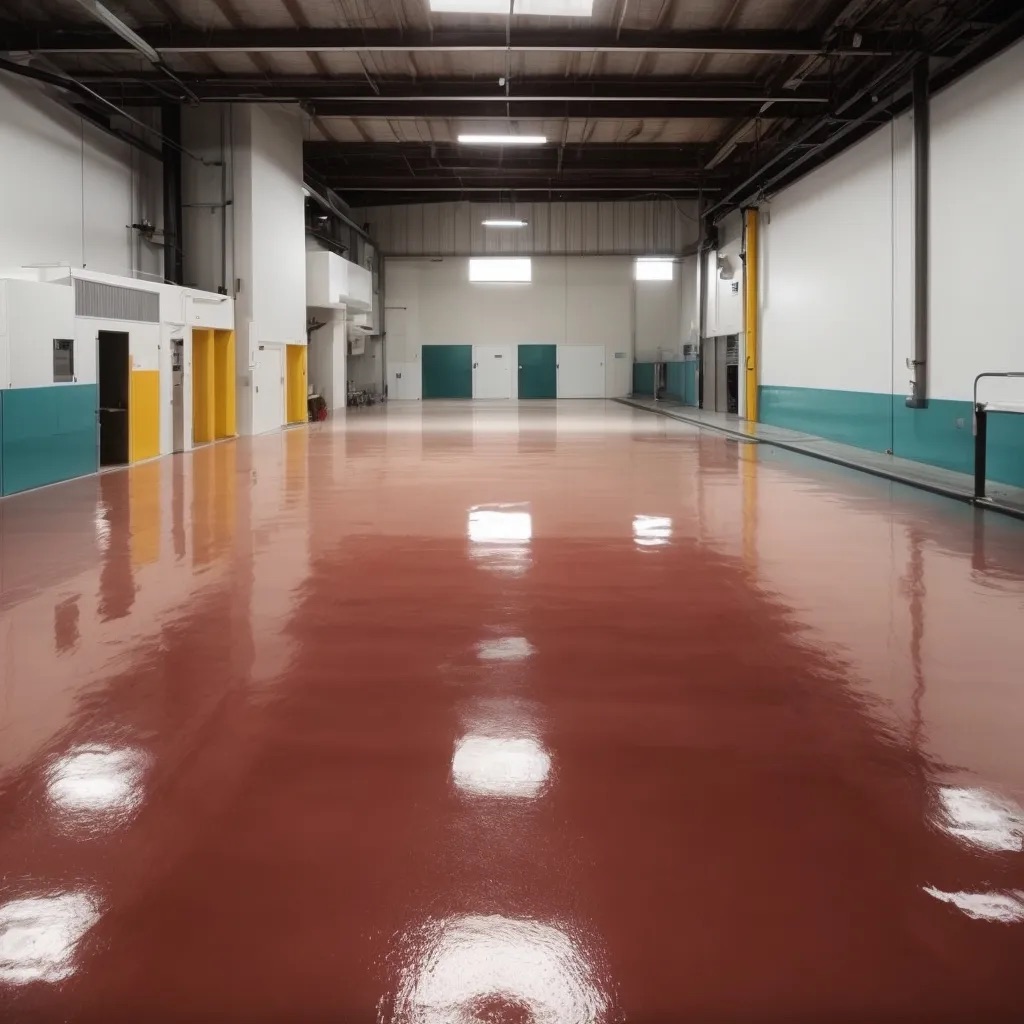
Are you looking for a flooring option that combines durability, chemical resistance, and hygienic properties? Look no further than epoxy flooring! This versatile material has become increasingly popular for both residential and commercial applications.
However, with so many types and characteristics to consider, it’s important to understand the basics of epoxy flooring before making a decision. In this article, we’ll explore the characteristics and types of epoxy flooring, as well as its applications, installation, and maintenance.
Characteristics of Epoxy Flooring
Epoxy flooring is a popular choice for many applications due to its numerous desirable characteristics. Understanding these characteristics can help you determine if epoxy flooring is the right choice for your needs. Here are some of the most important characteristics of epoxy flooring:
Durability and strength: Epoxy flooring is known for its exceptional strength and durability. It can withstand heavy traffic, impact, and even chemicals without showing signs of wear and tear.
Chemical resistance: Epoxy flooring is highly resistant to chemicals such as acids, solvents, and oils. This makes it an ideal choice for facilities that deal with harsh chemicals on a regular basis.
Abrasion resistance: Epoxy flooring can withstand heavy foot and vehicular traffic without showing signs of wear and tear. This makes it an ideal choice for high-traffic areas.
Slip resistance: Epoxy flooring can be formulated to provide a slip-resistant surface, making it a safe choice for facilities where slip and fall accidents are a concern.
Hygienic properties: Epoxy flooring is non-porous and easy to clean, making it a hygienic choice for facilities such as hospitals, schools, and food processing plants.
Types of Epoxy Flooring
There are several types of epoxy flooring available, each with its own unique characteristics and benefits. Understanding the different types can help you choose the best epoxy flooring for your specific needs. Here are some of the most common types of epoxy flooring:
Self-dispersing epoxy flooring: This type of epoxy flooring is highly durable and can withstand heavy traffic and impact. It is often used in industrial settings, such as warehouses and manufacturing facilities.
Self-leveling epoxy flooring: This type of epoxy flooring is smooth and seamless, making it ideal for commercial and industrial settings where cleanliness is important. It is often used in hospitals, laboratories, and pharmaceutical facilities.
Mortar epoxy flooring: This type of epoxy flooring is highly durable and can withstand extreme temperatures and heavy impacts. It is often used in industrial settings where heavy machinery is used.
Graveled epoxy flooring: This type of epoxy flooring incorporates small pieces of aggregate, giving it a textured surface that provides excellent slip resistance. It is often used in commercial and industrial settings where slip and fall accidents are a concern.
Terrazzo epoxy flooring: This type of epoxy flooring is highly decorative and can be customized to match any aesthetic. It is often used in high-end commercial and residential settings.
Flake epoxy flooring: This type of epoxy flooring incorporates small chips of color, giving it a unique, decorative finish. It is often used in residential and commercial settings, including garages, kitchens, and retail spaces.
Applications of Epoxy Flooring
Epoxy flooring can be used in a wide range of applications, from residential to commercial and industrial settings. Here are some of the most common applications of epoxy flooring:
Residential applications: Epoxy flooring can be used in residential settings, including garages, basements, and even kitchens and living areas. Its durability and stain resistance make it a popular choice for homeowners.
Commercial and industrial applications: Epoxy flooring is commonly used in commercial and industrial settings, including warehouses, manufacturing facilities, and automotive shops. Its strength, chemical resistance, and slip resistance make it an ideal choice for these types of facilities.
Healthcare facilities: Epoxy flooring is a hygienic choice for healthcare facilities, including hospitals, clinics, and laboratories. Its smooth surface makes it easy to clean and disinfect, reducing the risk of infection.
Educational facilities: Epoxy flooring is often used in schools and universities due to its durability and low maintenance requirements. It can withstand heavy foot traffic and spills without showing signs of wear and tear.
Food and beverage facilities: Epoxy flooring is a popular choice for food and beverage facilities, including commercial kitchens and restaurants. Its non-porous surface and chemical resistance make it easy to clean and maintain, reducing the risk of contamination.
Epoxy flooring is a versatile and popular flooring option that offers numerous benefits, including durability, chemical resistance, and hygienic properties. By understanding the characteristics and types of epoxy flooring, as well as its applications, installation, and maintenance, you can make an informed decision about whether epoxy flooring is the right choice for your needs.
Key Takeaways
- Epoxy flooring is known for its durability, chemical resistance, abrasion resistance, slip resistance, and hygienic properties.
- There are several types of epoxy flooring available, including self-dispersing, self-leveling, mortar, graveled, terrazzo, and flake epoxy flooring.
- Epoxy flooring can be used in a wide range of applications, including residential, commercial, and industrial settings, as well as healthcare, educational, and food and beverage facilities.
- Proper installation and maintenance are essential for maximizing the benefits of epoxy flooring.
